On Thought Piles and Speech Curves
This post is part of a series on Tim Urban’s book, What’s Our Problem? a self-help book for societies.
--
To outline the importance of free speech, Tim Urban utilizes the concepts of Thought Piles and Speech Curves. Let’s explore.
Each of us has an inner self, representing our thoughts, and an outer self, representing our speech. On any topic, our thoughts and words typically fall on a spectrum. In the image below, the brain symbolizes our thoughts and the circle around it represents what we say out loud. Our brains connect when we're able to say what we think.
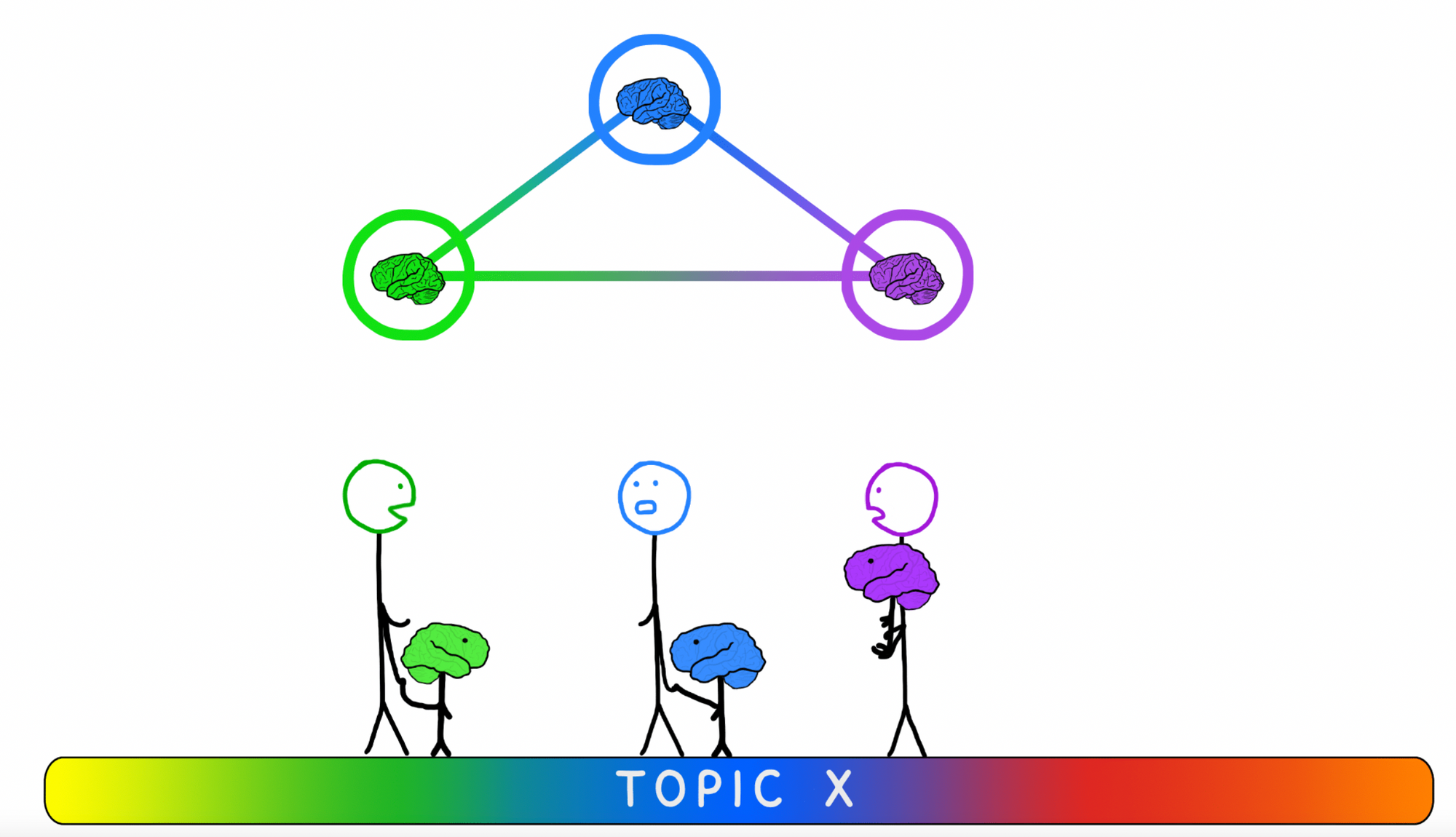
If we plot all our “brains” (i.e. inner selves) on a graph, we get a Thought Pile. The most common views lie in the middle, with fringe opinions on either side. (In this example, it looks like a bell curve, but that’s not always the case.)
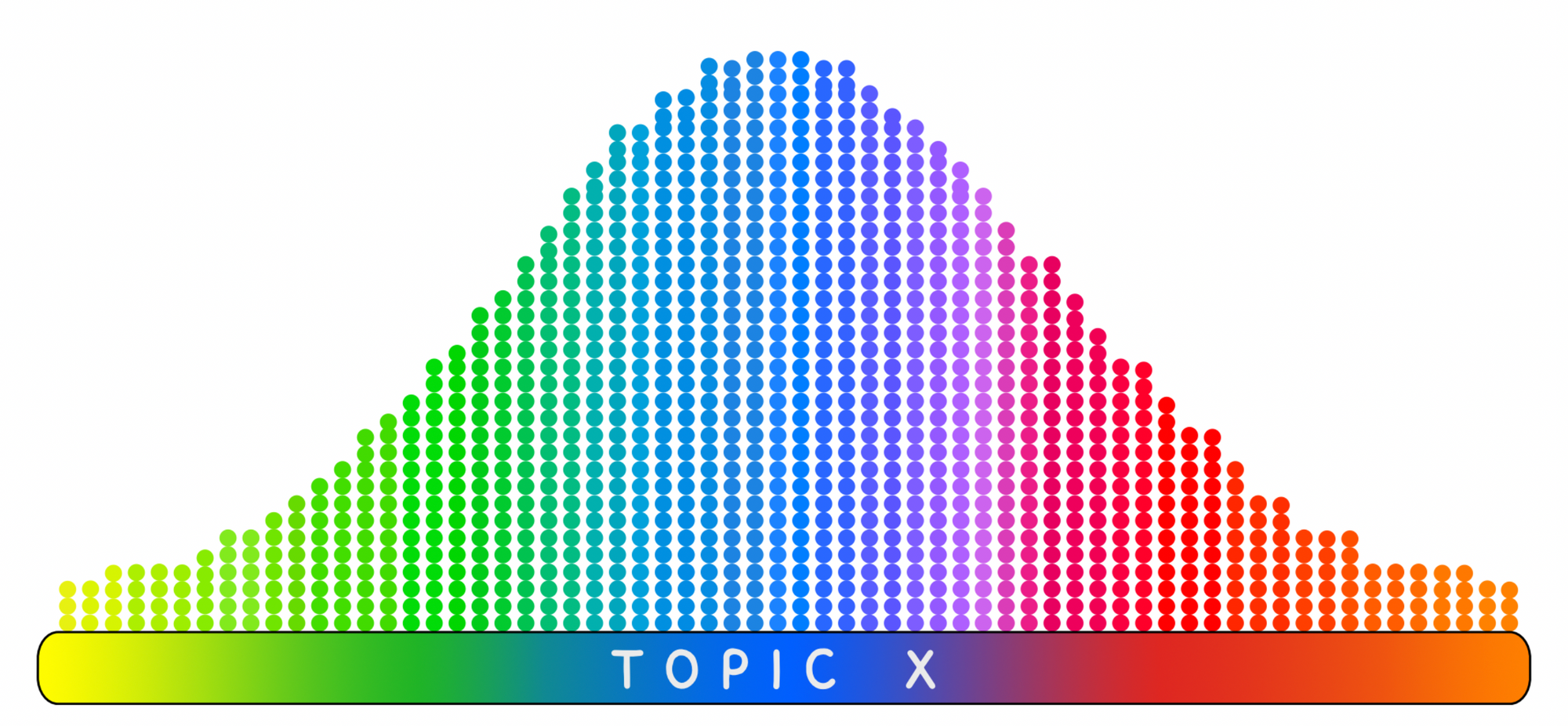
In a world where everyone freely expresses their thoughts on a topic, the Speech Curve matches the shape of the Thought Pile and sits perfectly on top.
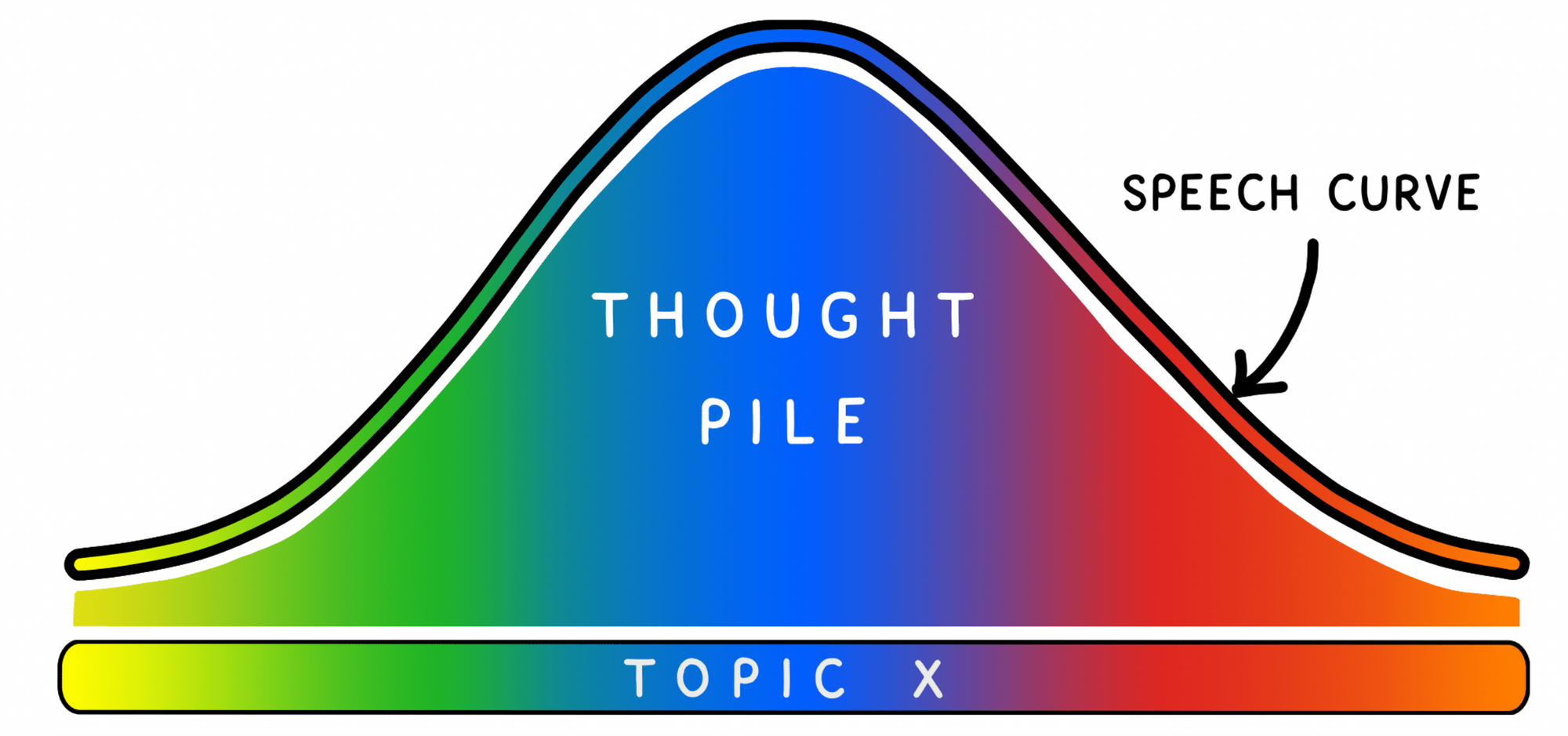
But when censorship forbids certain types of speech, what we think and what we say become disconnected. And since we can’t read minds, we only know what people say publicly (represented by the outer circles). Viewpoint diversity becomes hidden.
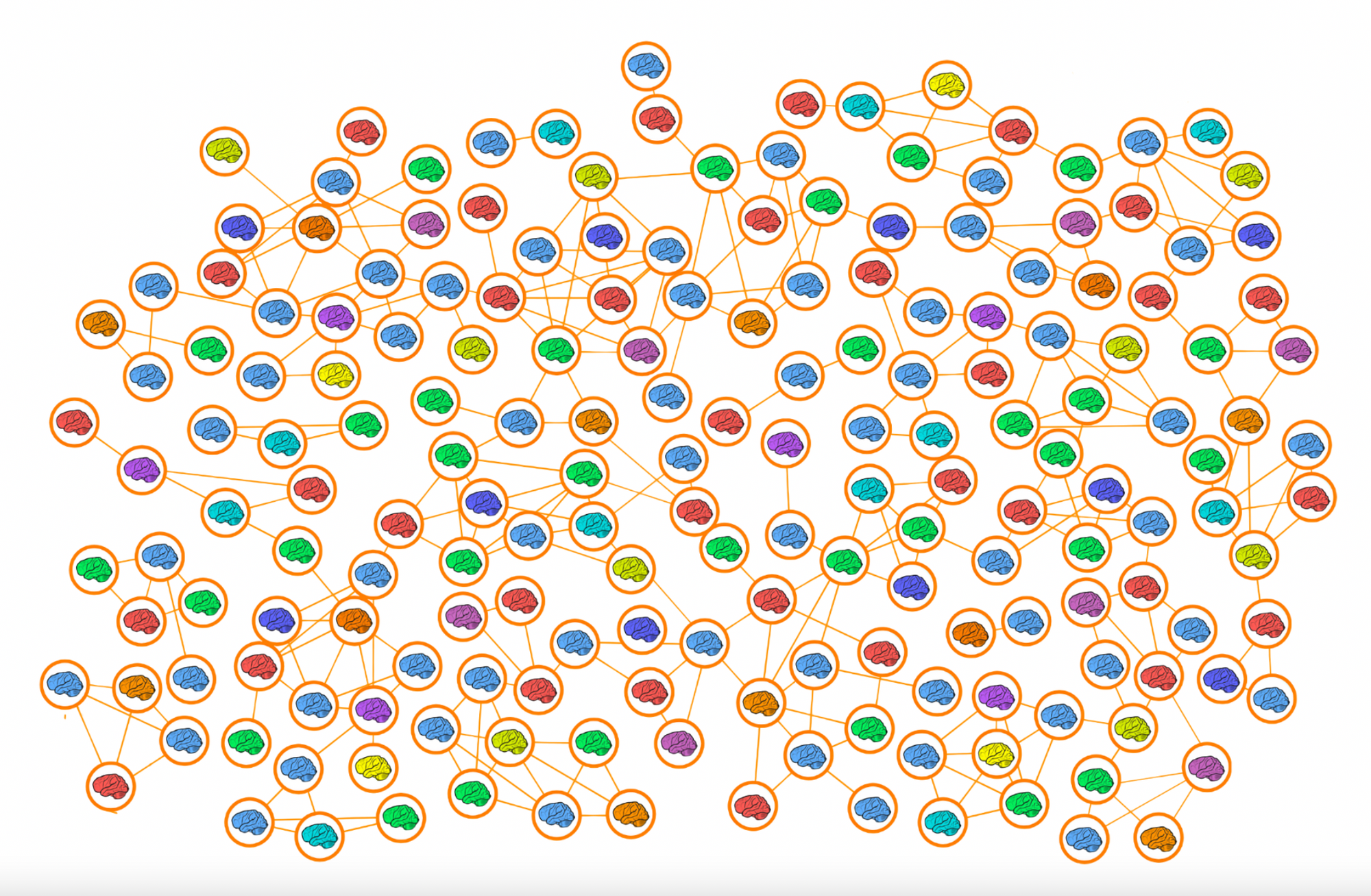
Urban uses the example of King Mustache, who bans all criticism of himself, to show why this can be dangerous. Censoring speech on this topic leads to suppressed thoughts (the dormant Thought Pile) and insincere praise (artificially generated speech).
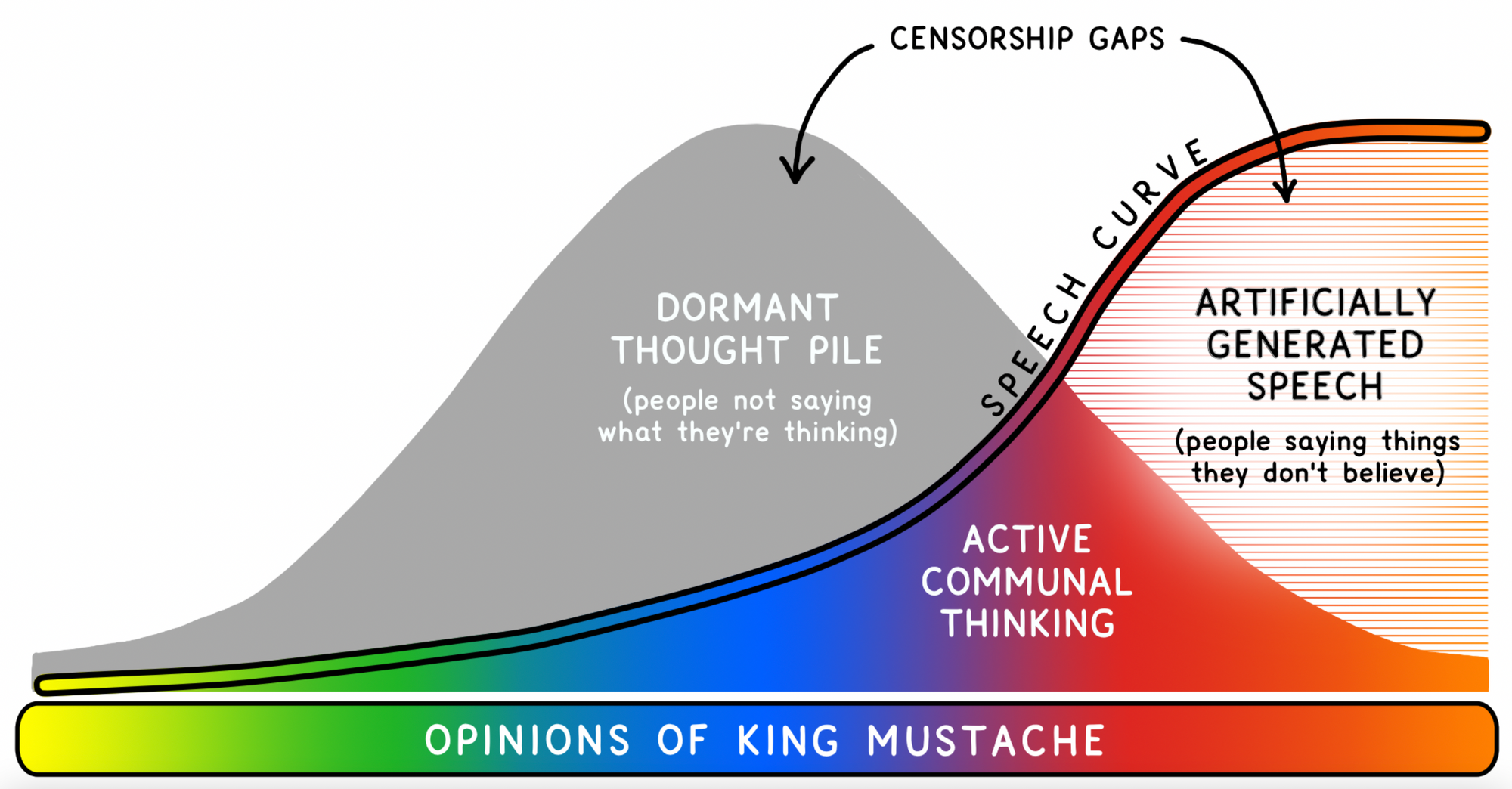
Individual group members begin to question their own views because they assume their private opinions differ significantly from the group's shared views, even when most group members actually have similar opinions. Over time, the entire group's way of thinking shifts.
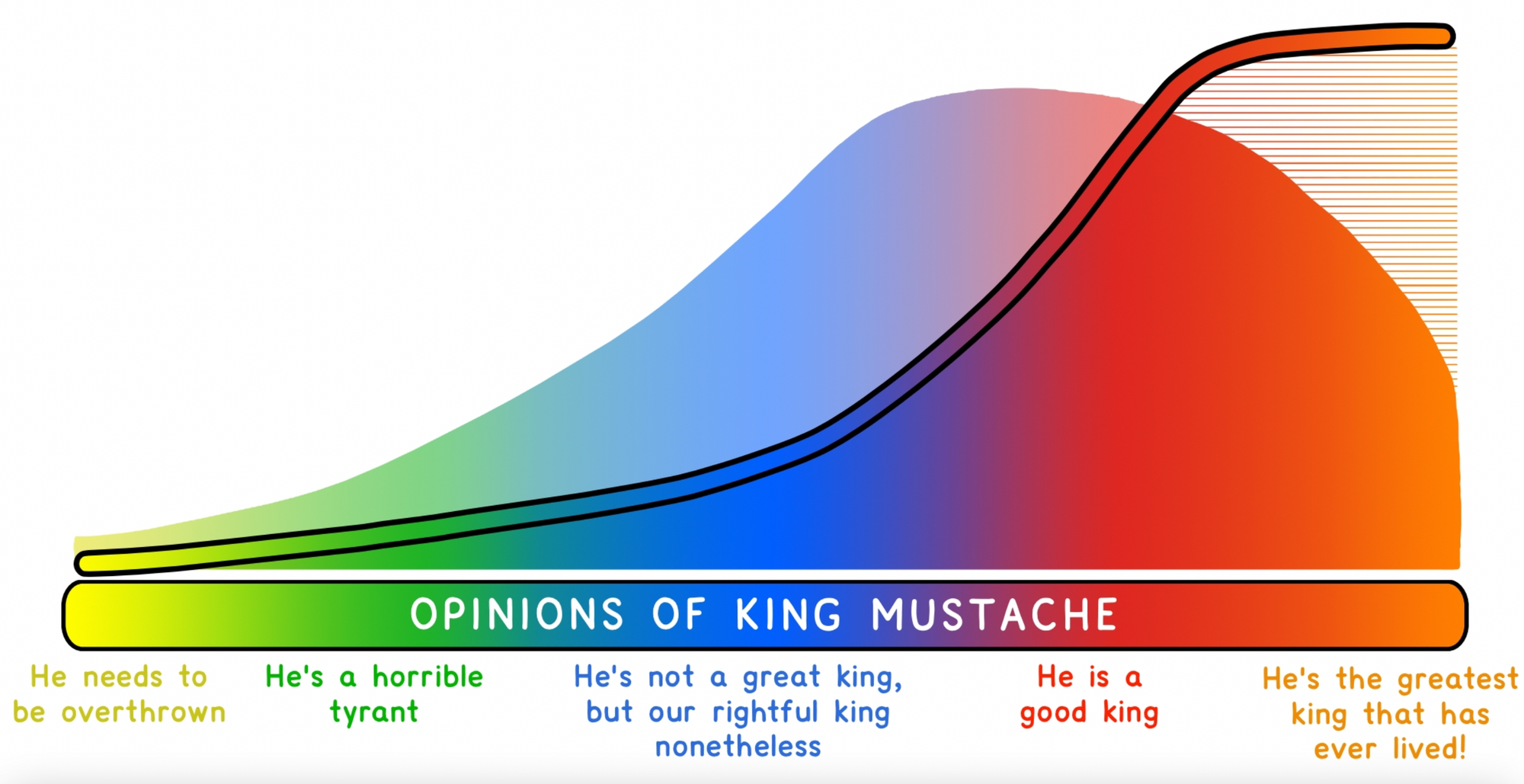
That's what censorship can do. Left unchecked, it restricts not only speech but thought itself. It’s a powerful mind-control tool.
To be clear, absolute freedom of speech is not the solution. When speech harms individuals or violates their rights, it is not protected. In my view, debates on this topic would be more productive if they focused on how free speech principles apply to our relatively new ecosystem of online platforms and where lines should be drawn.